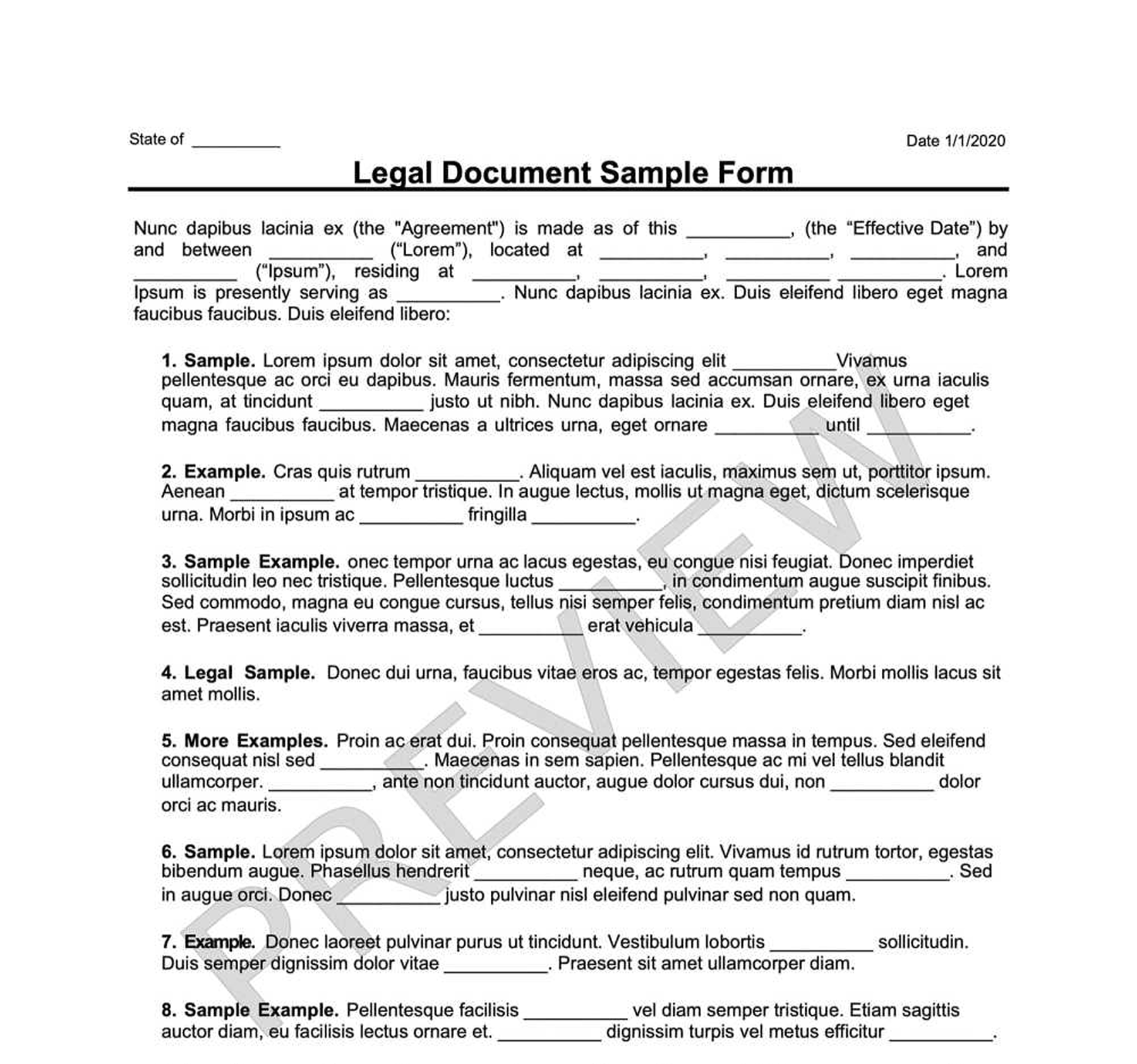Employee Handbook
An Employee Handbook is a written booklet outlining the duties of the and responsibilities of an employee towards the company.

How it Works
Build your selected document.
Answer a few simple questions with step-by-step instructions.
Print & download forms instantly. Sign & make it legal.
What Is a Employee Handbook?
When someone is first hired at a new job, getting acquainted with how things work takes a little time, to make that process a bit smoother, companies often choose to create an Employee Handbook.
This is not a legal document of any kind but is a useful tool for both the employer and employee. Without knowing the established culture within the company, they're more likely to make a mistake.
Similarly, the employer uses the Employee Handbook to provide specific legal protections and lawsuits.
What Is an Employee Handbook?
An Employee Handbook is not a typical corporate document. It's a manual, and as such, it's much longer than your average document. If a company decides to need an Employee Handbook, they'll need HR help to write it.
The handbook requires a great deal of information, so taking the time to do it right is essential. A company's Employee Handbook has to provide all the necessary information to any new employee joining the company.
If possible, there should be no ambiguity or any invitation for further questions. Beyond that, the Employee Handbook represents the company's foundation and a window to how things work daily.
Other Names for Employee Handbook
Depending on your state, an Employee Handbook may also be known as:
- Employee Field Guide
- Staff Manual
- Employee Manual
- Employee Booklet
- HR Manual
- Human Resources Handbook
Who Needs an Employee Handbook?
While there are no set rules, it's recommended that every company with more than five employees have an Employee Handbook, including family businesses. This is so everyone has a clear understanding of what's expected of them and what they will be getting in return.
Why Use Swyft Forms for Your Employee Handbook?
Customized for you, by you
Create your own documents by answering our easy-to-understand questionnaires to get exactly what you need out of your Employee Handbook.
Specific to Your Jurisdiction
Laws vary by location. Each document on Swyft Forms is customized for your state.
How to Create an Employee Handbook with Swyft Forms
Creating an Employee Handbook can be a confusing task. You want to make things as straightforward as possible for the sake of your employees and your company. That's why having a template can be so immensely helpful.
Let Swyft Forms help with our extensive library of attorney-vetted legal forms. The process is fast and easy. All you have to do is fill out our easy-to-understand questionnaire. Once complete, simply download your form as a PDF or Word document from your secure online account.
What Information Will I Need to Create My Employee Handbook?
To create your document, please provide:
- Company details: The legal name of the company, address, and governing law.
- Disclaimer: A short explanation that an Employee Handbook is not an Employment contract.
- Employment policies: An outline of the relevant federal employment laws regarding payments.
- Payroll information: The company policy regarding payroll per the law and the schedule.
- Benefits information: Detail benefits offered like 401K, expense reimbursement, or work perks.
- Vacation information: Details any state-mandated leaves, paid vacations, sick leave, and military leave.
- Discrimination policies: Details the company policy regarding discrimination and sexual harassment.
- Drug Testing Policy: Details whether the company tests its employees for drug use and what happens if they fail the test.
- Other policies: Any other relevant policies, such as separation policy, dress code, hygiene, discipline, office romance, or conflict of interest.
Employee Handbook Terms
- Disclaimer: A statement that the company won't be responsible for inaccuracies in the handbook.
- Non-Compete clause: One party agrees not to compete professionally with the other.
- Non-disclosure clause: In this case, the employee cannot take sensitive information related to work outside the company.
- Privacy Policy: Company's internal rules regarding privacy practices.
- Dress Code: Established regulations about what the employees should and shouldn't wear to work.
- Shareholder: A person or entity owning shares in a company.
- Board of Directors: A group of people appointed to manage and oversee a company on behalf of its shareholders.
Employee Handbook Signing Requirements
The Employee Handbook doesn't require any signature, and it comes directly from within the company's HR department. It should contain the company's logo and corporate seal as applicable. Also, since it's not a legal document, you don't need a notary public or a witness to make it official.
What to Do with Your Employee Handbook?
When a new employee joins the company, they are usually provided with a copy of the Employee Handbook. Some companies may also require new employees to sign and acknowledge having read the Employee Handbook. However, an employee can decline to sign the handbook, which may be noted in the HR department.
Other Names for Employee Handbook
- Employee Handbook Form
- Employee Handbook Document
- Employee Handbook Agreement
- Employee Handbook Contract
- Employee Handbook Template
- Employee Handbook Checklist
Who Needs a Employee Handbook?
Why Use Swyft Forms for Your Employee Handbook
Customized for you, by you
Specific to Your Jurisdiction
Why choose Swyft Forms?
Create professional documents for thousands of purposes.
Make unlimited documents and revisions.
Our documents are vetted by lawyers and are applicable to all 50 states.
